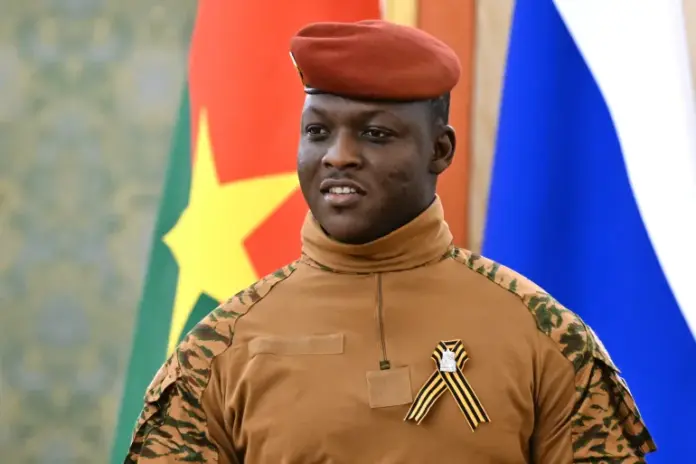In a region marked by shifting alliances and fading Western influence, the arrests of foreign humanitarian workers in Burkina Faso are more than a local incident — they expose the underlying geopolitical tectonics reshaping the Sahel. The ruling junta accuses INSO, a European-based NGO, of espionage. But behind the official line lies a deeper realignment — one where NGOs, diplomats, and even humanitarians are no longer seen as neutral actors.
A Suspicious Network: Foreign NGO Accused of Intelligence Gathering
On Tuesday, October 7, Burkina Faso’s military-led government announced the arrest of eight individuals linked to the International NGO Safety Organisation (INSO), including three Europeans — two French nationals (one dual Franco-Senegalese) and a Czech national. The others detained were four Burkinabe and one Malian citizen.
The key accusation: operating despite suspension, INSO was allegedly collecting and disseminating sensitive security information to foreign powers, without authorization. The country director, a French citizen, had already been detained in late July when the NGO’s activities were suspended for three months. Despite this, other staff reportedly continued “clandestine meetings and data gathering.”
The Minister of Security, Mahamadou Sana, suggested INSO was functioning as a foreign intelligence network, undermining Burkina’s national security under the guise of humanitarian support.
INSO, headquartered in The Hague, has firmly denied the charges, stating that its data is based on open-source reporting and is exclusively used for the protection of humanitarian staff working in conflict zones. It is not the first time the NGO has faced challenges in the region — Niger expelled it in late 2024 under similar pretexts.
Beyond the Accusations: A Calculated Show of Force
The arrest of foreign nationals under espionage claims is not just a legal issue — it’s a political message. One aimed at Western chancelleries, humanitarian structures, and international NGOs still attempting to operate in Sahel territories increasingly hostile to their presence.
Leaked reports suggest the government believes INSO had created a three-tier intelligence-gathering network, employing ex-military personnel, local field operatives, and embedded “community contacts.” These allegations remain unproven. Yet, the narrative fits a pattern: the reframing of Western actors — no matter how benign — as potential threats to national integrity.
This forms part of the junta’s broader sovereignist doctrine, under which neutrality is no longer presumed — it must be proven. The burden of proof, however, now lies with the foreigner.
A Broader Context: The Anti-Western Realignment of the Sahel
The government of Captain Ibrahim Traoré, in power since 2022, has consistently distanced itself from France and broader Western influence. In early 2023, the junta expelled French military forces and shuttered French diplomatic presence.
Together with Mali and Niger — both under military rule — Burkina Faso formed the Alliance of Sahel States (AES), a regional bloc defined more by its rejection of France than by effective counter-insurgency. In this axis, the West is no longer viewed as partner but as a former master whose influence must be dismantled.
In this light, Burkina Faso espionage arrests appear less about espionage and more about reasserting control over territory, narrative, and influence. The ongoing trend of banning NGOs, silencing civil society, and censoring media reflects this siege mentality. Since June 2025, over 20 NGOs have been revoked or suspended across the country.
Diplomatic Repercussions and a Shrinking Humanitarian Space
For Western Governments
The arrest of European nationals, especially those under NGO cover, puts diplomatic channels under strain. France’s foreign ministry has yet to release a comprehensive response — perhaps wary of escalating the situation or acknowledging a deeper crisis in its post-colonial presence.
For the Humanitarian Sector
These arrests have sent a chill through humanitarian networks. If neutral safety NGOs like INSO can be accused of espionage, what protection remains for less technical actors — especially those operating in jihadist-contested areas? The signal is clear: foreign presence will be tolerated only on the junta’s terms.
For Local Populations
As the field shrinks, the impact is real. Humanitarian organizations face restricted access, surveillance, or suspension. Aid flows may dry up, while local NGOs, often dependent on international structures, will be left without lifelines.
Precedent Set, Lines Drawn
The Burkina Faso espionage arrests are a turning point. Not necessarily in proving foreign malfeasance, but in setting a precedent: sovereignty now supersedes humanitarianism, and the junta is prepared to confront any perceived challenge to its authority — even from Europeans once considered allies.
In the battle for influence in the Sahel, words like “espionage” and “sovereignty” have become tactical tools. As Burkina Faso doubles down on its nationalist path, the West will have to rethink how — or even whether — to remain involved.



